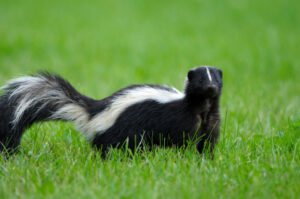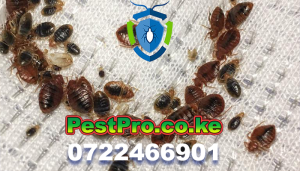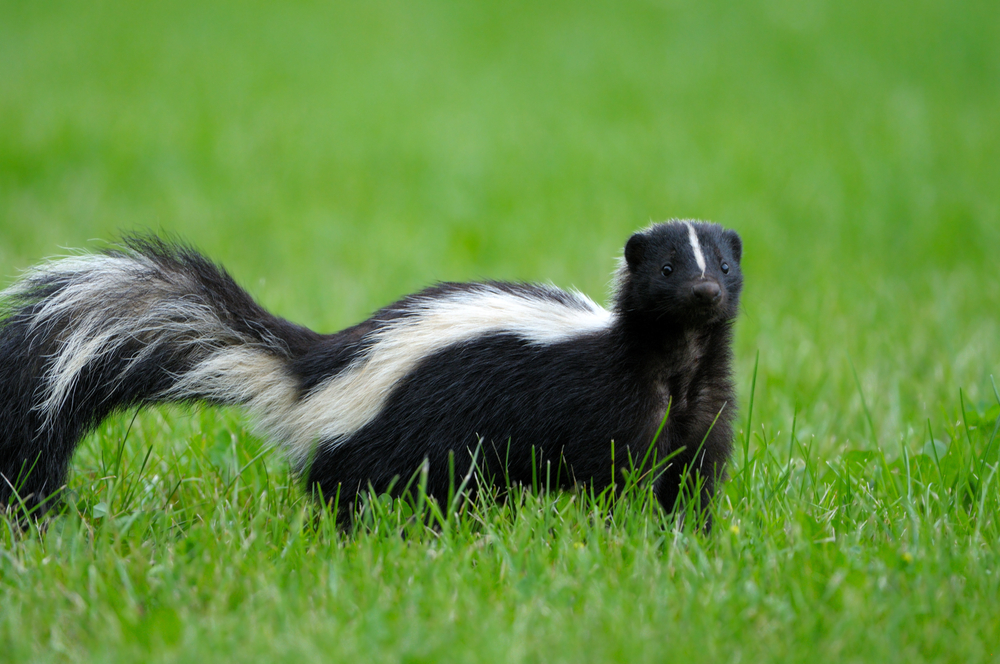How To Remove Skunk Smell
When a skunk sprays, it sprays a strong smelling fluid from a gland below their tail. It is used as a defense mechanism to drive away threats. The fluid is sticky and stays where sprayed and can last for several days. It isn’t very easy to remove the spray, instead you must neutralize the chemicals in the spray.
Using tomato juice to get rid of skunk is just a myth. While it does have a small neutralizing affect, smelling like skunk and tomato juice is the real result.
Skunk smell removal recipe

Our recipe for skunk odor removal is very effective and is made from common household ingredients. Mix up a batch and wash with it and it will begin neutralizing the spray immediately.
Our recipe is effective at neutralizing skunk odor and can be used on people, pets, tires or any object that has been sprayed by a skunk. Because the mix contains hydrogen peroxide it can cause skin, eye and mucous membrane irritation.
Also, peroxide can cause damage and fading to clothing, carpet, paint etc. Test the mixture on an inconspicuous portion of the material to check for damage before general use. Thorough rinsing with water will minimize any fading or damage.
Mix together:
One quart 3% hydrogen peroxide*
¼ cup baking soda
one teaspoon liquid dish soap
* white vinegar can be substituted, but it is not as effective
If washing a pet, keep the solution out of their ears and avoid their eyes and mouth. Wash thoroughly with the solution then rinse thoroughly. Repeat if necessary. Use the solution immediately after preparation. Do not store unused solution.
Removing skunk spray is most effective during the first few hours after spraying.

Skunks as Pests: A Stinky Nuisance
Skunks, with their distinctive black and white appearance and potent odor, are typically associated with the wilderness and natural habitats. However, in certain situations, these small, omnivorous mammals can become pests, causing various problems for homeowners and businesses. In this article, we will explore the reasons why skunks can be considered pests and the challenges they pose.
1. Property Damage:
Skunks are adept diggers and are known to burrow under buildings, decks, and sheds. They may excavate dens in search of shelter or suitable nesting sites. This digging behavior can lead to structural damage to homes and other structures. Additionally, they may uproot gardens and lawns while foraging for insects and grubs, causing unsightly and costly damage.
2. Disease Transmission:
Skunks are known carriers of diseases that can be transmitted to humans and pets. One of the most concerning is rabies, a viral disease that poses a significant health risk. While not all skunks carry rabies, the presence of these animals in populated areas raises the potential for transmission.
3. Skunk Spray:
The most notorious aspect of skunk behavior is their defensive mechanism – the foul-smelling spray. When cornered or threatened, skunks release a noxious spray from glands located near their anus. This spray can cause discomfort, nausea, and irritation to the eyes, nose, and skin. The smell is notoriously difficult to remove from clothing, pets, and even homes.
4. Attracting Other Pests:
Skunks are opportunistic feeders and are attracted to food sources such as garbage, pet food, and compost heaps. Their presence can inadvertently attract other pests, including raccoons, rodents, and insects, which can further exacerbate the problem for homeowners.
5. Lawn and Garden Damage:
Skunks are avid foragers and are particularly fond of insects, grubs, and small vertebrates found in lawns and gardens. While they help control certain pests, their feeding habits can result in unsightly lawn damage, with small holes and uprooted grass.
6. Nocturnal Activity:
Skunks are primarily nocturnal animals, which means they are most active during the night. Their digging, foraging, and presence around homes can lead to disturbances and noise that disrupt the sleep and peace of homeowners.

Preventing and Dealing with Skunk Pests:
- Secure Garbage Bins: Ensure that garbage cans are tightly sealed to discourage skunks from scavenging for food.
- Eliminate Food Sources: Remove pet food from outdoors, close compost bins securely, and avoid leaving accessible food or scraps around your property.
- Seal Entry Points: Inspect and seal potential entry points around your home, including under porches, decks, and in crawl spaces.
- Use Motion-Activated Lights or Sprinklers: These devices can deter skunks by surprising them with sudden light or water sprays when they approach your property.
- Consult a Pest Control Professional: If a skunk infestation becomes a persistent problem or poses a threat to your property and safety, it’s advisable to seek assistance from a pest control expert who can safely and humanely remove skunks from your premises.
Get stinky skunk smell off your facilities
While skunks serve valuable roles in natural ecosystems by controlling certain pests, they can become pests themselves when their presence leads to property damage, health risks, and unpleasant encounters. Understanding the reasons for skunk-related problems and taking proactive measures to prevent and address these issues is essential for homeowners and businesses that may encounter these nocturnal nuisances
Moths Control Services : Keeping Nairobi and Kenya Moth-Free

